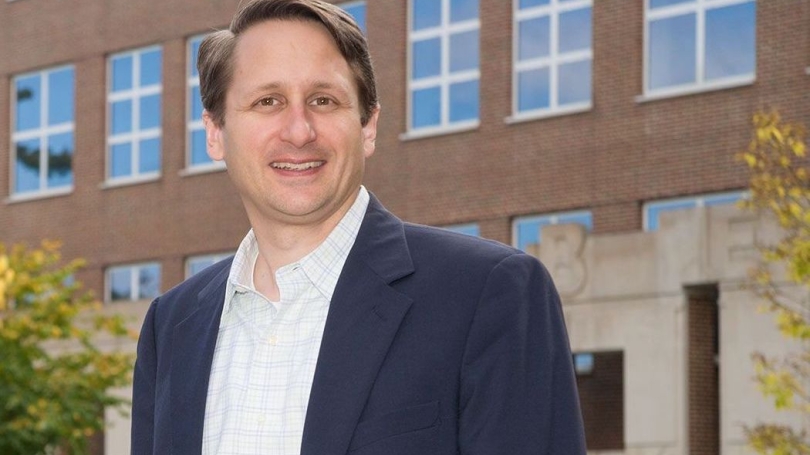
- About
- Departments & Programs
- Faculty Resources
- Governance
- Diversity
- News
Back to Top Nav
Back to Top Nav
Back to Top Nav
Back to Top Nav
Government professor Benjamin Valentino will serve as associate dean for the social sciences beginning July 1, 2024.
Dear colleagues,
I am pleased to announce that Benjamin Valentino, government professor and chair of the Department of Government, has agreed to serve as Associate Dean for the Social Sciences beginning July 1, 2024.
As associate dean, Ben will oversee our six departments in the social sciences—Anthropology, Economics, Geography, Government, History, and Sociology—as well as the Nelson A. Rockefeller Center for Public Policy and the Social Sciences, the Political Economy Project, and our minor in education.
An influential political scientist in both academia and the public sector, Ben's scholarship illuminates how democracies can minimize the human costs of war. His far-ranging research examines the causes and consequences of violent conflict and American foreign and security policies. Ben has contributed numerous articles and studies to top political science journals including The American Political Science Review, International Security, and The Journal of Politics, as well as such mainstream outlets as The New York Times, The Wall Street Journal, and Foreign Affairs.
Ben's first book, Final Solutions: Mass Killing and Genocide in the 20th Century, received the Edgar S. Furniss Book Award for making an exceptional contribution to the study of national and international security.
The recipient of numerous honors and awards, including grants from the MacArthur Foundation, United States Holocaust Memorial Museum, Stanford University, National Science Foundation, and Dartmouth's Rockefeller Center, Ben has delivered presentations on his research at academic and nonprofit institutions around the world.
Ben has also served as a consultant to U.S. government agencies involved in providing early warning of genocide and other forms of political instability. He was a member of the Genocide Prevention Task Force, a jointly sponsored initiative of the US Institute of Peace, the U.S. Holocaust Museum, and the American Academy of Diplomacy. He also served on the steering committee of the State Department's Global Futures Forum on Genocide Prevention.
Among Ben's many other public affairs roles, he serves as a non-resident senior fellow at the Simon-Skjodt Center for the Prevention of Genocide at the United States Holocaust Memorial Museum, where he was the co-creator of the museum's Early Warning Project. He serves as a board member of the Effective Peacebuilding Initiative, a foundation that supports evidence-based peace building and Every Casualty Counts, an organization that provides support to people and organizations around the world to document fatalities from armed conflict. He also serves on the board of visitors at the United States Army's Command and General Staff College, a graduate school for U.S. military and foreign military leaders. Previously, Ben served for four years as a member of the Experts Committee on Preventing Mass Violence, an independent group of former policy makers, activists, and academics convened to formulate policy recommendations related to preventing and protecting civilian populations from mass violence.
Ben earned his PhD from MIT and his BA, with distinction and departmental honors in political science, from Stanford University.
At Dartmouth, Ben teaches courses on international relations, international security, American foreign policy, and the causes and prevention of genocide. He also serves as co-director of the Government Department Honors Program, and as faculty coordinator of the War and Peace Studies Program at the Dickey Center for International Understanding. For the past three years, Ben has served as chair of the Department of Government.
With his leadership and public affairs experience, Ben will bring valuable insights to our academic leadership team. Please join me in congratulating Ben on his appointment as associate dean.
In closing, I once again extend my gratitude to John Carey, John Wentworth Professor in the Social Sciences, for his dedicated service as associate dean these past five years. His steady leadership played an integral role in supporting our faculty and staff through the pandemic, and in guiding the recruitment and professional development of exceptional scholars across the social sciences.
With best wishes,
Elizabeth F. Smith
Dean of the Faculty of Arts and Sciences